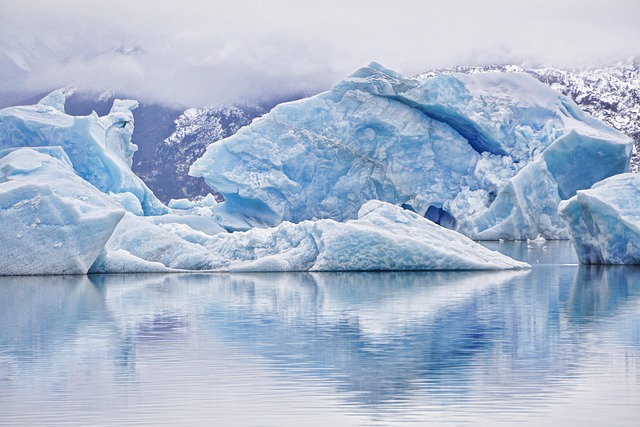Cold therapy, including cold plunges and water immersion, is a powerful tool for enhancing mental well-being. It stimulates the release of endorphins and activates the vagus nerve, leading to stress and anxiety reduction. Scientific research supports its calming effects on mood, resilience, and sleep quality. Regular cold exposure reduces inflammation, increases noradrenaline, and decreases cortisol, alleviating symptoms of depression, anxiety, and chronic stress. Incorporating cold plunges or ice-cold showers into daily routines offers effective stress relief and serves as a natural approach to anxiety management, promoting mental health through their powerful physiological responses.
In today’s fast-paced world, finding ways to enhance mental well-being is paramount. One emerging practice gaining traction is cold therapy, specifically cold plunges and water immersions, as a holistic approach to stress and anxiety relief. This article explores the science behind these practices, delving into their profound impact on mental health and providing insights on how incorporating cold exposure can foster anxiety reduction and promote relaxation. Discover the benefits of cold water therapy for stress relief and learn practical strategies to unlock its calming effects in your routine.
Understanding Cold Therapy: Unlocking the Potential for Mental Well-being
Cold therapy, often in the form of cold plunges or cold water immersion, has gained attention for its potential to revolutionize mental well-being. This ancient practice involves briefly exposing oneself to cold temperatures, typically through a cold shower, ice bath, or even a cold plunge pool. The concept might seem extreme at first, but the calming effects of cold water on the mind are increasingly supported by scientific research.
When you immerse yourself in cold water, it triggers a series of physiological responses. Your body releases endorphins, often referred to as “feel-good” hormones, which can reduce stress and anxiety levels. The shock of cold water also stimulates the vagus nerve, playing a crucial role in regulating emotions and promoting relaxation. Regular cold therapy sessions have been linked to improved mood, enhanced mental resilience, and better sleep quality—all essential components for maintaining optimal mental health.
The Science Behind Cold Plunges and Their Impact on Stress and Anxiety
The science behind cold plunges and their impact on stress and anxiety is a fascinating area of study. Cold water therapy, such as immersing oneself in cold water or taking a cold shower, has been shown to have numerous benefits for mental health. The calming effects of cold water immersion can significantly reduce levels of stress and anxiety by stimulating the release of endorphins, our body’s natural painkillers and feel-good chemicals. This response triggers a sense of relaxation and well-being, counteracting the physiological effects of stress on the body.
Moreover, cold exposure for anxiety reduction has been linked to improved regulation of the autonomic nervous system. The sudden exposure to cold water can help rebalance this system, which controls our ‘fight or flight’ response, leading to a greater sense of calm and reduced symptoms of anxiety. Regular practice of cold plunges can also enhance resilience to stress over time, as it teaches the body and mind to adapt more effectively to challenging conditions.
Exploring the Benefits of Cold Water Immersion for Relaxation and Mental Health
Cold water immersion, such as a cold plunge or ice bath, has gained popularity as an alternative therapy for promoting mental well-being and stress relief. The practice involves submerging oneself in cold water, typically around 50-59°F (10-15°C), for a short period, often just a few minutes. This sudden exposure to cold triggers a physiological response in the body, leading to numerous potential benefits for mental health and relaxation.
One of the key mechanisms behind these effects is the reduction of inflammation and an increase in noradrenaline levels. Cold water immersion has been shown to decrease cortisol, the stress hormone, and stimulate the release of endorphins, natural painkillers that can improve mood and promote a sense of calm. Additionally, the cold temperature constricts blood vessels, which can help reduce swelling and inflammation associated with stress and anxiety. As a result, regular cold plunges may provide an effective way to alleviate symptoms of depression, anxiety disorders, and even chronic stress, offering a natural and potentially transformative approach to enhancing mental resilience and overall relaxation.
Incorporating Cold Exposure into Your Routine: Strategies for Anxiety Reduction
Incorporating cold exposure into your daily routine can be a powerful tool in your arsenal for managing anxiety and promoting mental well-being. One simple yet effective method is to try a cold plunge or a short cold water therapy session, which has gained popularity for its potential stress-reducing benefits. The practice involves immersing yourself in cold water, typically below 59°F (15°C), for a brief period, often just a few minutes. This can be done through activities like taking an ice-cold shower, diving into a cold lake or ocean, or using a specialized cold plunge pool.
The calming effects of these cold immersions are thought to stimulate the release of stress hormones and activate the body’s natural relaxation response. Cold water therapy for mental health has been linked to reduced levels of cortisol, often referred to as the ‘stress hormone,’ which can help alleviate symptoms of anxiety and promote a sense of tranquility. Additionally, the jolt of cold can distract your mind from anxious thoughts, providing an immediate and effective form of stress relief. Many people incorporate this practice into their morning routines or after stressful events as a way to reset and find mental clarity.
Cold therapy, specifically cold plunges and water immersion, emerges as a powerful tool in the pursuit of mental well-being. The science behind these practices reveals significant potential in reducing stress, anxiety, and promoting relaxation. By incorporating controlled cold exposure into daily routines, individuals can harness the calming effects for improved mental health. With strategies outlined in this article, anyone can access these benefits, offering a natural and accessible approach to enhance overall psychological resilience.
